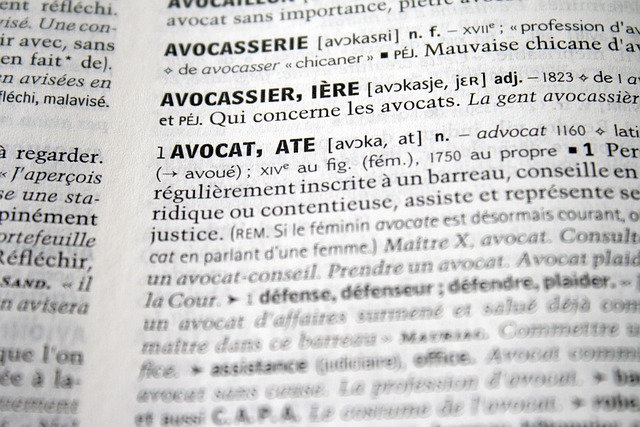Fraudulent financial practices, including accounting fraud and insider trading, are illegal and can be reported by recognizing red flags and documenting evidence. Employees have a crucial role in preventing and reporting employment law violations like wage theft through internal or external channels. The process involves meticulous documentation, filing complaints with regulatory bodies, and consulting specialized lawyers for complex cases to protect rights and ensure justice.
Fraudulent financial practices within organizations pose a significant threat to individuals, businesses, and the economy. This article delves into the intricacies of understanding these practices, offering a comprehensive guide on recognizing and reporting employment law violations. Learn about various fraudulent schemes, such as embezzlement, false accounting, and insider trading. Discover your rights as an employee and gain practical steps on how to report illicit activities. We also explore legal recourse and prevention strategies after reporting, ensuring you’re equipped with the knowledge to protect yourself and your financial interests.
- Understanding Fraudulent Financial Practices: Definition and Examples
- Your Rights as an Employee: Recognizing Employment Law Violations
- The Reporting Process: Steps to Document and Report Illicit Activities
- Legal Recourse and Prevention: What Happens After You Report?
Understanding Fraudulent Financial Practices: Definition and Examples

Fraudulent financial practices refer to a range of illegal or unethical actions designed to manipulate financial systems for personal gain. These activities can take various forms, from accounting fraud and embezzlement to insider trading and money laundering. Understanding what constitutes fraudulent behavior is the first step in combating it effectively. By recognizing red flags such as unusual transactions, conflicts of interest, or suspicious activity, individuals and organizations can play a crucial role in preventing and reporting these practices.
When it comes to employment law violations, knowing how to report them is just as important. If you suspect fraudulent financial practices within your workplace, including instances of embezzlement, false accounting, or unfair compensation, it’s essential to document the evidence and report it to the appropriate authorities. Across the country, numerous resources are available to help individuals navigate these complex issues, ensuring that justice is served and achieving extraordinary results in holding perpetrators accountable while protecting employees’ rights.
Your Rights as an Employee: Recognizing Employment Law Violations

As an employee, it’s crucial to understand your rights and be vigilant against any unethical or illegal financial practices within your organization. Employment law violations can range from wage theft and unequal compensation to more severe forms of fraud. If you suspect any wrongdoing, it’s essential to take action. The first step is to gather evidence—this could include pay stubs, records of unusual transactions, or communication that hints at foul play. Once you have concrete proof, the next logical step is to report these violations internally through your company’s compliance or human resources department.
If internal channels prove ineffective or are not available, external reporting options exist. Many countries have regulatory bodies dedicated to combating financial fraud and employment law breaches. You can file a confidential report with these agencies, which will investigate the matter without exposing your identity. Remember, your rights as an employee are protected by law, and any retaliation from employers for reporting such violations is illegal. It’s also worth noting that general criminal defense strategies may apply in severe cases of fraudulent financial practices, providing a complete dismissal of all charges under specific circumstances.
The Reporting Process: Steps to Document and Report Illicit Activities

When it comes to fraudulent financial practices, such as employment law violations, knowing how to report illicit activities is a crucial step in ensuring justice and preventing further harm. The process typically begins with documenting evidence meticulously. This includes gathering all relevant information, such as dates, names, amounts involved, and any supporting documents or communications related to the suspected wrongdoing. Creating a detailed record provides a solid foundation for subsequent reporting steps.
Reporting employment law violations can be done through various channels, depending on the nature of the case. Individuals can file complaints with government regulatory bodies responsible for labor laws and financial oversight. Additionally, many organizations have internal compliance or ethics departments that handle such matters. For complex cases involving white-collar crime, consulting a specialized lawyer experienced in winning challenging defense verdicts across the country is advisable. They can guide individuals through the process, ensuring their rights are protected and providing the best chance of a favorable outcome.
Legal Recourse and Prevention: What Happens After You Report?

After reporting fraudulent financial practices, the next crucial step is understanding your legal recourse and prevention strategies. If you’ve uncovered employment law violations within your organization, it’s essential to take action through official channels. Start by documenting every detail of the suspected fraud, including dates, individuals involved, and any supporting evidence. This comprehensive record will serve as your foundation when submitting a formal complaint to the appropriate regulatory bodies.
The process typically involves reporting the violations to relevant government agencies responsible for financial regulation and employment law enforcement. These entities have established procedures for handling such complaints, ensuring a thorough investigation. While navigating these legal steps might seem daunting, especially in high-stakes cases or complex scenarios, seeking guidance from a general criminal defense lawyer can prove invaluable. They can provide clarity on the best course of action, helping you achieve extraordinary results in resolving fraudulent activities and upholding your rights.
Fraudulent financial practices pose significant threats to individuals and organizations alike. By understanding common definitions and examples, recognizing your rights as an employee, and knowing the proper reporting process, you can play a vital role in preventing and combating these illicit activities. Remember, your actions can lead to legal recourse and help deter future violations. When it comes to How to Report Employment Law Violations, taking proactive steps can make a substantial difference in ensuring fairness and accountability.






